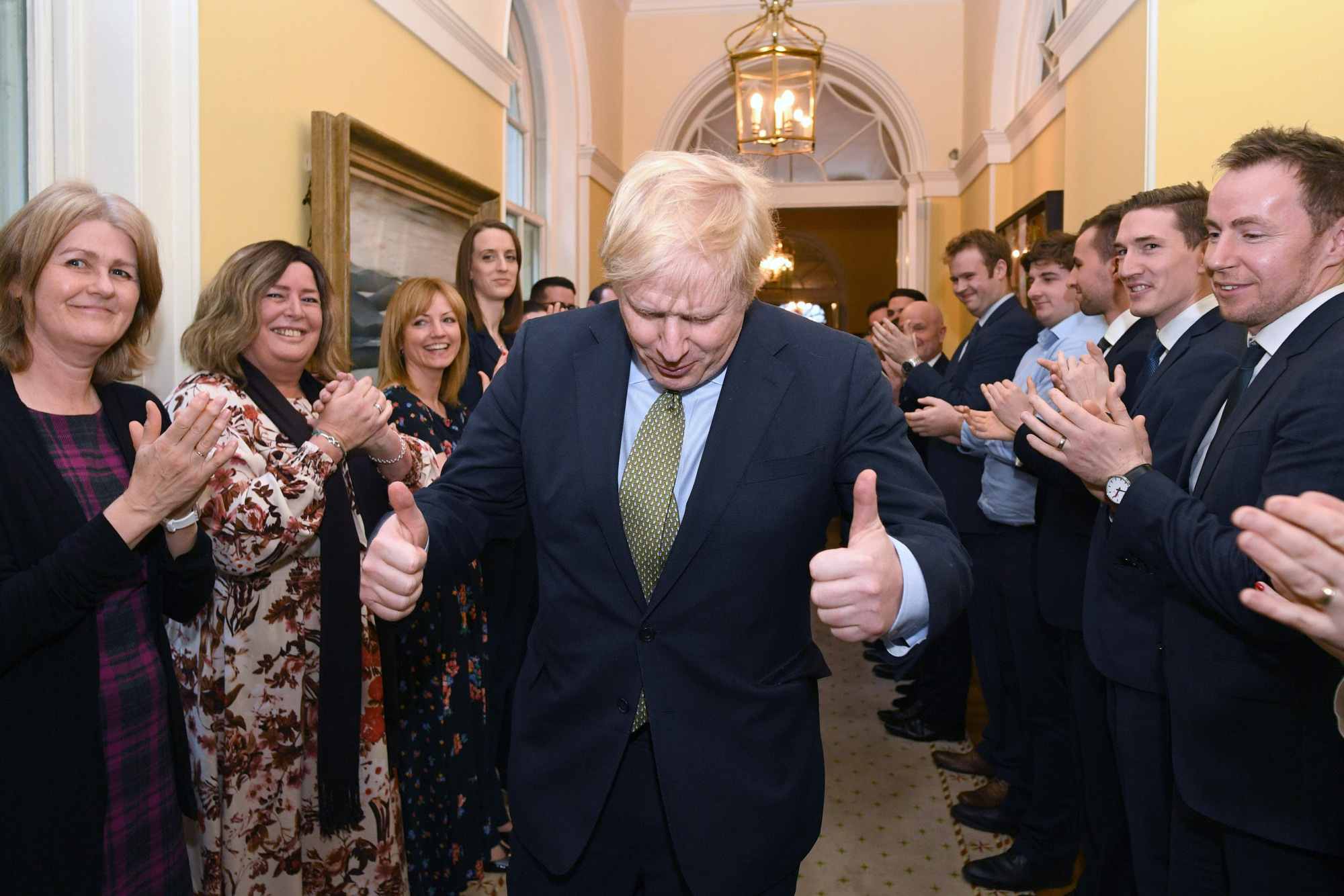Boris Johnson dramatically altered the landscape of British politics on Thursday night, ending a period of debilitating parliamentary gridlock and three years of uncertainty over Brexit. In doing so, the U.K. prime minister gave himself what his predecessor Theresa May could never have: the political space to define his country's departure from the European Union and address the social and economic frustrations that led to the 2016 Brexit vote.
In an election where constituency swings of as little as 5 percent could make a big difference, the movements went almost entirely the way of Johnson's Conservatives. In all, , the Tories won 365 seats for a whopping majority of 80. Long-held Labour seats in its former industrial heartlands, such as Workington in the northwest and Blyth Valley in the northeast, switched to the Tories — some for the first time in 70 or more years. Jo Swinson, leader of the anti-Brexit Liberal Democrats, lost her seat.
It was the Tories' fourth consecutive election victory, but by far its most decisive, handing Jeremy Corbyn's Labour its worst drubbing since 1935. If the hard-left Corbyn's time is up, Johnson's hour has come after many setbacks on his personal journey to power. While the consequences of his victory on two fronts — Brexit and domestic policy — are hard to overstate, so are the challenges he faces. In getting this election, Johnson found a trap door out of a parliamentary cage on Brexit, but he had to write a series of blank checks that will be hard to honor.


















With your current subscription plan you can comment on stories. However, before writing your first comment, please create a display name in the Profile section of your subscriber account page.